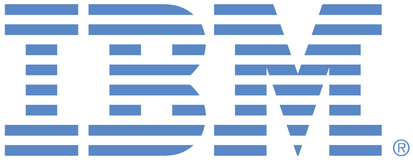
This portal is to open public enhancement requests against products and services offered by the IBM Data Platform organization. To view all of your ideas submitted to IBM, create and manage groups of Ideas, or create an idea explicitly set to be either visible by all (public) or visible only to you and IBM (private), use the IBM Unified Ideas Portal (https://ideas.ibm.com).
Shape the future of IBM!
We invite you to shape the future of IBM, including product roadmaps, by submitting ideas that matter to you the most. Here's how it works:
Search existing ideas
Start by searching and reviewing ideas and requests to enhance a product or service. Take a look at ideas others have posted, and add a comment, vote, or subscribe to updates on them if they matter to you. If you can't find what you are looking for,
Post your ideas
Post ideas and requests to enhance a product or service. Take a look at ideas others have posted and upvote them if they matter to you,
Post an idea
Upvote ideas that matter most to you
Get feedback from the IBM team to refine your idea
Specific links you will want to bookmark for future use
Welcome to the IBM Ideas Portal (https://www.ibm.com/ideas) - Use this site to find out additional information and details about the IBM Ideas process and statuses.
IBM Unified Ideas Portal (https://ideas.ibm.com) - Use this site to view all of your ideas, create new ideas for any IBM product, or search for ideas across all of IBM.
ideasibm@us.ibm.com - Use this email to suggest enhancements to the Ideas process or request help from IBM for submitting your Ideas.
IBM Employees should enter Ideas at https://ideas.ibm.com

@Stefan,
In working with a number of internal product teams within IBM that have used WKS or in the process of using it this requirement keeps coming up. Various teams have proposed ideas around their needs. As we look to merge our tooling into Watson Studio there are capabilities within it that should work nicely, especially around the continuous learning techniques. In addition to the the above, we need the following endpoints
a) Ability to evaluate a WKS model given a test set or blind set and produce metrics + confusion matrix
b) Ability to version and deploy a WKS model
c) Ability to collect and store feedback
d) Ability to provide continuous learning (Enable continuous learning, Provide thresholds for automatic re-training, accuracy thresholds for publishing a model - Note : All this exist in Studio today for WML)
@Andrew Freed
Making Watson smarter with use (harnessing end user feedback) is a very nice idea. We already have a placeholder in the roadmap, but haven't had time to discuss it seriously. As the NLU is currently working on a NLU Train API, I'm sure that soon we'll have technology to support the continuous learning idea.
It seems that there are several different scenarios that require WKS API. I think that your idea leans more towards the NLU Train API, because I'm not sure that you need WKS for the use case that you describe.
borella@webeing.co
Could you describe the scenario (workflow) that you envision for the API that you describe?
Where would the artifacts (type system, docs) come from?
How does step 6 fit into the workflow, and why do you need an API for it? (This is the human annotation activity.)
What is the user benefit (business value) for your case? Are you saving time, scaling activities, replacing WKS GUI, or something else?
The more information you provide, better I'll understand your case and better the chances to promote this idea to the WKS roadmap. Thanks.
Marc, we are planning to separate the publishing of trained models (done by WKS human annotators or project managers) from deploying the models to NLU/WDS (done by developers). NLU is working on a MMA (model management API). When this is ready, the API that you need would belong to NLU, not to WKS as WKS will be responsible for developing and publishing the models, not for managing the model deployment across services.
If you feel that the other WKS API cases are needs, please elaborate on the business/client benefits of having such APIs. I don't see such benefits apart from someone trying to replicate WKS in a different application.
My specific request is to provide an API to automate the deployment of a MLM to WDS. This is for a key partner who is looking to scale & automate Discovery collections using a pre-defined WKS model.